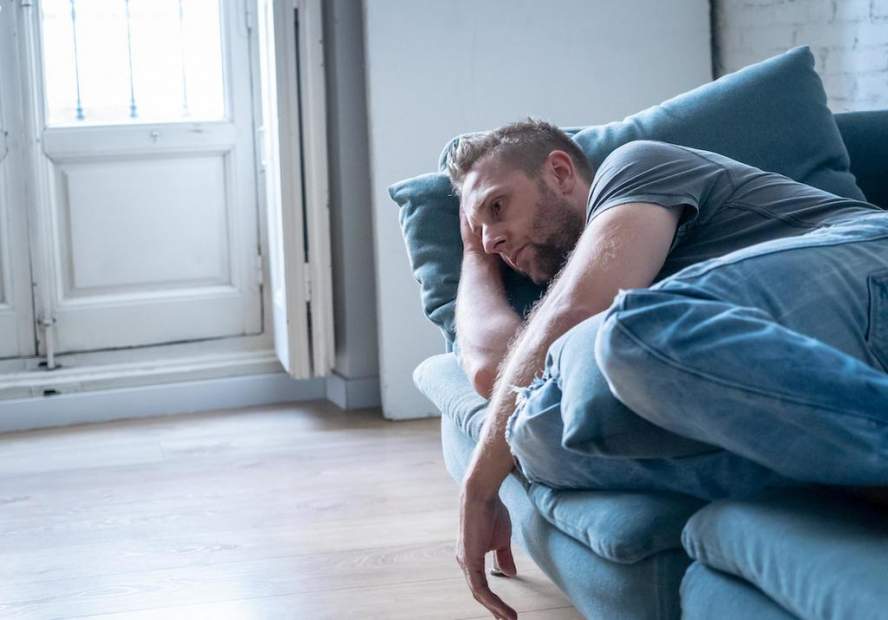Counselling for Depression
Everyone has low days, but do you ever feel so low that it is difficult to get out of bed and manage daily activities? Do you constantly feel sad or hopeless about the future? Does it feel like nothing makes you feel happy anymore? If this sounds like you, you could be battling depression. Symptoms of depression can vary from person to person, but if you feel any of the listed symptoms below that have lasted for more than two weeks, it would be beneficial to talk to a mental health professional who can help you.
- Getting too much or too little sleep
- Feeling numb or sad
- Changes in appetite
- Feeling worthless
- Feeling hopeless about the future
- Anxiety
- Difficulty enjoying activities you usually like
- Decrease in energy or motivation
- Negative thought patterns or self-talk
- Feeling sad or crying without a tangible reason
- Recurring thoughts of death or suicide
- Lost of interest in sex
Depression is a biological condition that affects people from all walks of life. Iit is more than just a low mood affected by a difficult situation, it can affect aspects of a person’s thoughts, emotions, behaviours, and significantly affect one’s health. People often feel like they might be stuck in a dark place, or constantly in a loop of negative thoughts without any hope of getting out of it. For some, managing day to day tasks are a struggle, and for others, it feels impossible that can escalate to life-threatening thoughts and behaviours with suicide as the end outcome. Often depression is frequently ignored or untreated, and often keeps people from overcoming the condition to live fulfilling lives.
Types Of Depression:
Depression may come once or twice in a person’s life or may be chronic and lasting. Although different types may have similar symptoms, treatment is often different for each type.
Major Depression
Major depression is often referred to as ‘Major Depressive Disorder’, ‘Clinical Depression’, or ‘Unipolar Depression’. It is usually characterised by significant low moods, negative thought loops, lack of interest in activities, changes in appetite, low energy, or changes in sleeping patterns.
Antenatal and Postnatal Depression
Women are at an increased risk of depression during pregnancy (Antenatal) as well as in the year following childbirth (Post Natal Depression). This type of depression may commonly be known as ‘baby blues’ which is a common condition related to hormonal changes following childbirth. Depression, however, can be more severe than ‘baby blues’ in that it last longer and can affect the maternal bonding, the child’s development, breastfeeding, child rearing, and the mother’s relationship with family members.
Bipolar Disorder
Also known as ‘Manic Depression’ because the individual struggling with this disorder experiences period of mania ( abnormally elevated mood, high energy, racing thoughts, little sleep, difficulty focusing, often irritable), and then a period of depression. Mania can be mild or can be so extreme that people can hallucinate or enter psychosis. These manic phases are then followed by a ‘crash’ with a depressive episode.
Dysthymic Disorder
Commonly known as ‘Persistent Depressive Disorder’, refers to a chronic depression that although is less severe than Major Depressive Disorder, symptoms can last up to two years.
Seasonal Affective Disorder (SAD)
This type of depression is related to the variation of light exposure in different seasons. It is typically present more in winter as people are more likely to be spending more time indoors, thus causing a disturbance in the normal circadian rhythm of the body that is influenced by light exposure into the eyes. People often notice lack of energy, feeling sleepy, weight gain and a low mood during winter, but feeling fine during other seasons.
What Causes Depression?
Although, research points to a strong genetic link to why someone gets depression, it is not definitive and could be thought of as a risk factor instead of a direct causal link. There is also data to show that it could be due to an imbalance in neurotransmitters that are responsible for mood regulation. However, that isn’t a conclusive linear cause either, and it could also be due to stressful life events, physical health problems, low self-esteem, relationship troubles, poor nutrition, alcohol use, drug usage, finical troubles, trauma or even triggered by the loss of a loved one.
What Can you do now?
If you think you are experiencing symptoms of depression, seek help from a qualified mental health professional as it is unlikely to go away on its own. Depression symptoms can vary from person to person, here are some things you can put in place to help you with your struggle. If any of these tasks seem difficult, they can be broken down into simpler more manageable steps, and if it still feels difficult get a close friend or family member to encourage you.
- Education: Educate yourself on what depression is and how it is affecting you. This can give a greater sense of control over your disorder and reduce feelings of hopelessness.
- Remember: Depression is an illness, not a sign of weakness or character deficit.
- Self-care: As hard as it might seem, try to spend more time doing the things you enjoy. It could even be as simple as listening to your favourite songs, going to get coffee at your favourite cafe, or wearing clothes you like and feel good in.
- Your Thoughts: Being aware of your negative thought patterns, and remember thoughts are sounds, words, stories, bits of language, passing through our heads, thoughts may or may not be true. Thoughts are not direct orders, we don’t have to obey them, nor do you have to believe them.
- Be Curious: Start to understand the chain of events that is your, Thinking-Feeling-Behavior pattern that happens after an event or circumstance. For example, if you made a mistake during a presentation, what might be your thoughts, feelings and following behaviour following this incident.
For those of you who are caring for someone with depression or know someone who is caring for someone who is battling depression it would be beneficial for that person to seek some support as well, to get more information on what you can do to help as well as support you with some of the challenging relationship dynamics or suicidal behaviours. Suicidal behaviour is complex, and early intervention can prevent suicide deaths. Talking to someone about their suicidal thoughts and feelings can be difficult, but if you are unsure whether someone is suicidal the best way to find out is to ask. Showing someone you are concerned can be an immediate way to help someone, as well as letting them talk it out.
Suicide Warning Signs
- Talking about or thinking about suicide
- Having a plan for suicide
- Previous suicide attempt or self-harming behaviour
- Withdrawing or active distancing from friends or family
- Dramatic changes in eating or sleeping habits
- Putting affairs in order, eg. writing a will, or giving away possessions
- Feeling hopeless or alone with regards to the future
- Feeling trapped, or that there is no way out of the situation
If you or a loved one are having thoughts of suicide, call Lifeline Australia at 13 11 14. If someone is in immediate danger call Triple Zero (OOO).
If you or a loved one are having thoughts of suicide, it’s time to act now, don’t delay.



